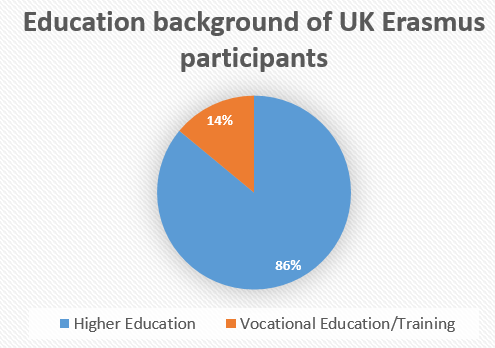 Although some countries that are not EU members participate in the Erasmus student exchange programme, it is unclear whether the UK will continue its participation following Brexit. Charlie Cadywould writes that educational and cultural exchanges will be vital for ensuring Britain does not close itself off from Europe, but that programmes like Erasmus need to do a much better job of encouraging those not enrolled at a university, such as vocational learners, to take part.
Although some countries that are not EU members participate in the Erasmus student exchange programme, it is unclear whether the UK will continue its participation following Brexit. Charlie Cadywould writes that educational and cultural exchanges will be vital for ensuring Britain does not close itself off from Europe, but that programmes like Erasmus need to do a much better job of encouraging those not enrolled at a university, such as vocational learners, to take part.

The question of what kind of relationship the UK will have with the rest of Europe after 2019 continues to dominate the political debate. So far, most of the focus has been on the four freedoms and aspects of the single market – immigration, trade and regulatory divergence – while little attention has been paid to other aspects of the UK’s relationship with Europe.
Whatever the effect on trade rules and free movement, we Brits do not need to close ourselves off from our European neighbours. Broad horizons will make future generations better exporters, more mobile and give us more ‘soft power’. Cultural and educational exchange programmes will also help the UK to attract foreign students – an important export in its own right – as well as the best talent from around Europe.
The big challenge ahead is to ensure that cultural and educational exchange is available to all, and not just elites and those attending top universities. It is no coincidence that those who backed Brexit last year were far less likely to hold a degree: my recent research found this group were also far less likely to have socialised with someone from a different country in the previous six months, or even to have travelled abroad.
This isn’t happening at the moment. Take Erasmus, Europe’s flagship cultural and educational exchange programme. The programme has been shown to improve participants’ employability through soft skills, hard skills such as the ability to speak foreign languages, and in some cases work experience. It helps participants to be more confident in their abilities, more tolerant towards other people, and more open-minded and curious about new challenges.
Despite all these fantastic benefits, it has a real problem reaching people from deprived backgrounds, ethnic minorities, and those who don’t go to university. The scheme has been expanded to include a vocational element, but it represents a miniscule portion of the Erasmus programme, which is still dominated by university students. If we look just at the raw numbers of Brits who participated in Erasmus to study in 2015, 11,981 (86 percent) were enrolled in higher education, compared to 1,943 (14 percent) participating in vocational education or training.
Chart: Background of UK participants in the Erasmus programme

Note: Figures from 2015
However, while higher education study placements typically lasted for the best part of a year – the average length was 211 days of funded study – vocational learners typically only spent two or three weeks abroad. In fact, when the total number of days funded through Erasmus in 2015 is aggregated, less than 4 percent went to those enrolled in vocational education and training programmes.
While there is no data available on the differential impact of these forms of participation in Erasmus, it seems unlikely that a two-week trip somewhere would lead to the same levels of understanding for a different culture, language skills, soft skills, or long-lasting personal friendships that would be formed over the course of several months.
We might be leaving the European Union, but as we relinquish certain institutional ties, informal links will only become more important. The individual relationships formed through educational and cultural exchange, the attitudes, knowledge and skills it imparts, will be vital to ensuring Britain does not close itself off from the world, and continues to benefit from co-operation with our European neighbours. Rightly, though, in order to ensure there remains political support for these exchanges, they must be reformed to benefit a much wider range of people. Expanding Erasmus for skills is a much-needed first step.
Please read our comments policy before commenting.
Note: This article gives the views of the author, and not the position of EUROPP – European Politics and Policy, nor of the London School of Economics.
_________________________________
 Charlie Cadywould – Policy Network
Charlie Cadywould – Policy Network
Charlie Cadywould is a Researcher at the international think tank Policy Network, which alongside its German partner Das Progressive Zentrum, recently organised a town hall event in London to discuss the future of UK-Europe co-operation with Thomas Oppermann, chair of the SPD group in the German parliament.



Thank-you for this article on the vocational learning aspect of Erasmus+ which is not as widely known about as the higher education aspect. The Erasmus+ UK National Agency, a partnership between the British Council and Ecorys UK, manages the programme in the UK. In terms of the figures that you give for participants in 2015, the numbers are lower than the data we produce – it may be that you are only looking at the higher education element of the programme? The vocational strand sits alongside the higher education strand and take up is good for UK organisations. In 2015 alone 6871 VET learners went on work placements and we awarded 31 million euros to projects relating to vocational learning. You can find more information on our statistics page at https://www.erasmusplus.org.uk/statistics. Please don’t hesitate to contact us if you would like any further information.